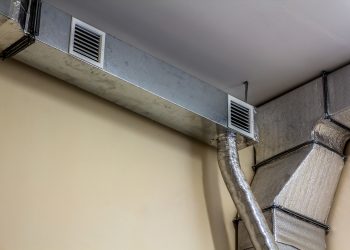Regular septic tank maintenance protects your property, saves money, and prevents costly disasters. Understanding when and why to schedule septic pumping ensures your system operates efficiently for years to come.
What Is Septic Pumping and Why Does It Matter?
Septic pumping removes accumulated solids and sludge from your septic tank. Over time, waste builds up in layers within the tank. While bacteria break down organic matter, some materials remain and must be physically removed.
Without regular pumping, these solids overflow into your drain field. This causes system failure, environmental contamination, and expensive repairs. Professional septic tank services prevent these problems through scheduled maintenance.
How Often Should You Pump Your Septic Tank?
Most residential septic tanks need pumping every three to five years. However, several factors influence this timeline:
Household Size
Larger families generate more wastewater, requiring more frequent pumping. A two-person household might pump every five years, while a family of six may need annual service.
Tank Size
Smaller tanks fill faster than larger ones. A 1,000-gallon tank serving four people typically needs pumping every three years. A 1,500-gallon tank for the same family might last four to five years.
Water Usage Habits
High water usage accelerates tank filling. Frequent laundry, long showers, and running dishwashers daily increase pumping frequency.
What Goes Down the Drain
Flushing non-biodegradable items, grease, and chemicals disrupts bacterial balance. This slows waste breakdown and requires more frequent pumping.
Warning Signs Your Tank Needs Immediate Attention
Don’t wait for your scheduled pumping if you notice these red flags:
Slow Drains Throughout the House
When multiple fixtures drain slowly, your septic system may be backing up. This often indicates a full tank or blocked pipes.
Sewage Odors
Strong smells around your septic tank or drain field suggest system overload. These odors indicate gases escaping from an overfilled tank.
Pooling Water
Standing water near your septic tank or drain field signals system failure. This requires immediate septic tank repair to prevent environmental damage.
Lush Grass Over the Drain Field
Unusually green grass above your drain field indicates sewage is fertilizing the area. This means your system is leaking and needs professional attention.
The Professional Pumping Process
Qualified septic tank services follow a systematic approach:
- Tank Location and Access: Technicians locate and uncover the tank lid
- Inspection: They examine tank condition and measure sludge levels
- Pumping: Industrial equipment removes all liquids and solids
- System Check: Professionals inspect baffles, inlet/outlet pipes, and overall tank integrity
- Documentation: They record service details and recommend future maintenance
Choosing the Right Septic Tank Services
Select experienced professionals who offer comprehensive septic tank services. Look for licensed, insured companies with positive local reviews. Quality providers offer emergency septic tank repairalongside routine maintenance.
Ask potential contractors about their inspection process, equipment quality, and disposal methods. Reputable companies properly dispose of waste at approved facilities and provide detailed service records.
Protecting Your Investment
Your septic system represents a significant investment in your property. Regular septic pumping costs far less than system replacement or major septic tank repair. A well-maintained system can last 20-30 years, while neglected systems may fail within a decade.
Schedule pumping before problems arise. Keep maintenance records and monitor your system’s performance between services. Address minor issues promptly to prevent costly repairs.
Take Action Today
Don’t wait for warning signs to appear. Contact local septic tank services to schedule an inspection and determine your pumping schedule. Regular maintenance protects your home, family, and environment while preserving your property value.
Remember: proactive septic pumping prevents reactive septic tank repair. Invest in routine maintenance to ensure your system serves you reliably for decades.









